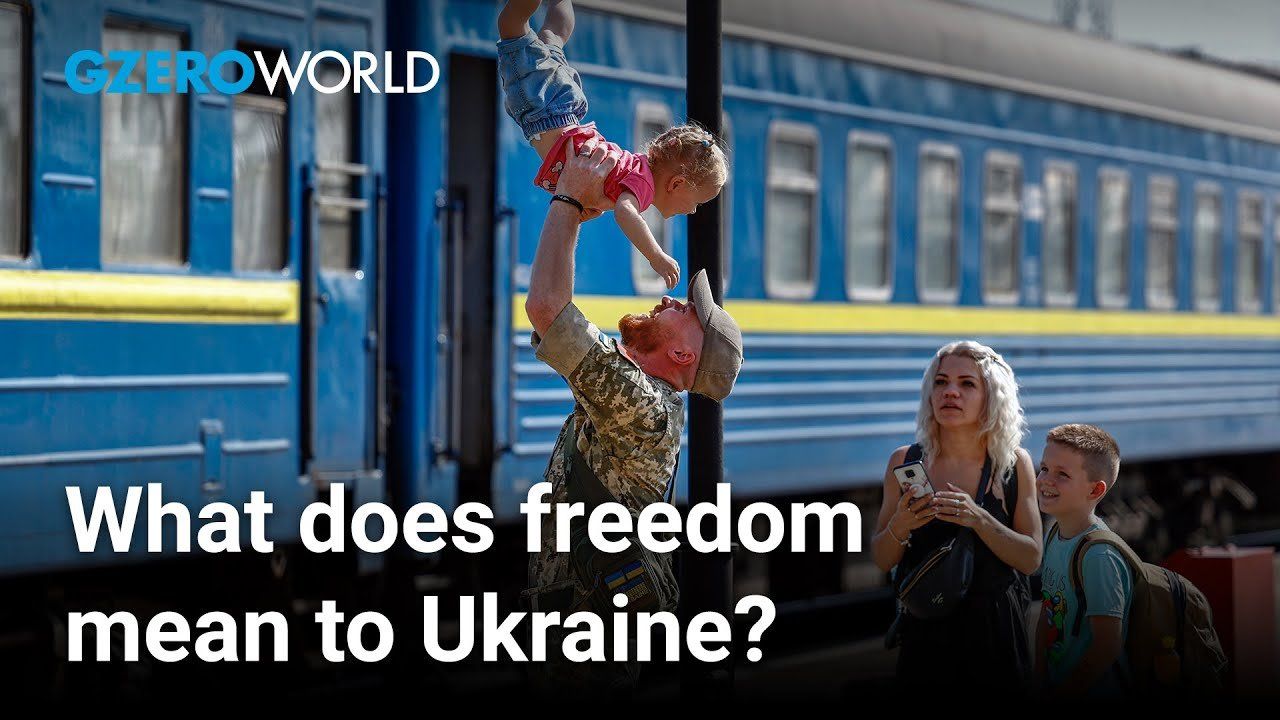October 15, 2024
In Ukraine, freedom is not some abstract concept studied by philosophers and poets.
Thousands of Ukrainians have fought and died to preserve their country's hard-earned freedoms, says historian and author Timothy Snyder. "There's this Ukrainian word “de-occupation,” which they tend to say instead of liberation. And that really gets you thinking about freedom as positive because, sure, you can de-occupy, and it's important that the torture stops, and the deportations stop, and the kidnapping of children stops. But the word de-occupation reminds you that that is still just the beginning. You have to clear the rubble and rebuild the playgrounds, and the buses and the trains have to start running again."
In a wide-ranging interview with Ian Bremmer for the latest episode of GZERO World, Snyder talks about how Ukrainians view freedom differently from many in the West. For them, it is a means to an end rather than the end itself. Sure, they need freedom from Russian aggression, Snyder says. But that's only step one. True freedom is about the liberties we can enjoy, like a train running on time and taking a child to a playground. That's the kind of freedom, Snyder says, that Ukrainians are fighting to protect.
GZERO World with Ian Bremmer, the award-winning weekly global affairs series, airs nationwide on US public television stations (check local listings).
New digital episodes of GZERO World are released every Monday on YouTube. Don't miss an episode: subscribe to GZERO's YouTube channel and turn on notifications (🔔).
More For You
- YouTube
In this "ask ian," Ian Bremmer analyzes Trump’s recent meeting with Zelensky and how close (or far) Russia and Ukraine are from a peace deal.
Most Popular
- YouTube
Before turning to Top Risks 2026, Ian Bremmer looks back at how this year’s Top Risks 2025 actually performed.
Pro-democracy protesters carry portraits of North Yemen's late president Ibrahim al-Hamdi.
REUTERS/Khaled Abdullah
In the latest twist to Yemen’s decade-long civil war, a group of government ministers declared support for the UAE-backed Southern Transitional Council (STC), a rebel group that broke the war’s deadlock earlier this month by seizing control of the oil-rich Handramout region.
© 2025 GZERO Media. All Rights Reserved | A Eurasia Group media company.
